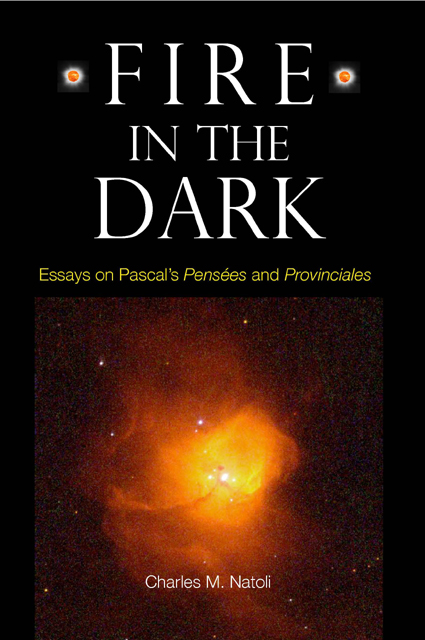4 - Revelation/Revolution: A Reflection on Newness in the Provinciales
Published online by Cambridge University Press: 17 March 2023
Summary
Il semble que les premiers mots des Métamorphoses d’Ovide, in nova fert animus, soient la devise du genre humain. . . .
It seems that the first words of Ovid’s Metamorphoses, “The mind is carried to new things,” are the motto of mankind . . . .
Voltaire, Dictionnaire philosophique, “Nouveauté”Quelle chimère est-ce donc que l’homme, quelle nouveauté, quel monstre, quel chaos . . . .
What a chimera man is, what a novelty, what a monster, what a chaos . . . .
Pascal, Pensées (fr.S 164)Although it is customary to date the modern era from the seventeenth century, the scant esteem in which it holds what is new—at the time, a way of thinking so old as to be immemorial—clearly distinguishes that century from a more modern modernity, one on which the Enlightenment succeeded in imposing a veritable cult of innovation—a new idol before which postmodernity, a more modern modernity still, also bends in worship. For innovation, having dethroned the mores maiorum under the auspices of the Goddess of Reason, proceeded to accomplish yet another revolution— novae res novae—by installing itself in the high seat of that now outmoded deity.
At the time of the Provinciales, innovators, les novateurs, are, after the model of Catilina in Sallust, neither more nor less than revolutionaries. According to the topos of malefic novelty of which Catilina is a paradigm in the rhetorical tradition, these enemies of the public peace are so many furieux who would risk setting all ablaze as a prelude to a new order, res novae, itself a prelude to novae tabellae, the abolition of the colossal debts they have amassed under the goad of their unbridled vices, debts which they could never hope to liquidate otherwise.
- Type
- Chapter
- Information
- Fire in the DarkEssays on Pascal's <i>Pensées and Provinciales</i>, pp. 54 - 66Publisher: Boydell & BrewerPrint publication year: 2005



